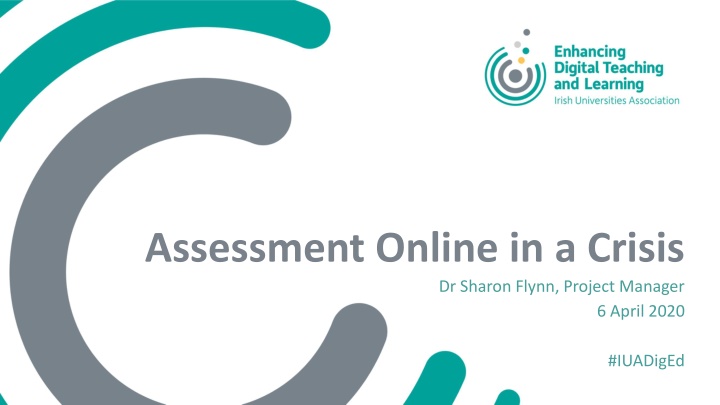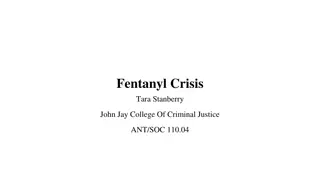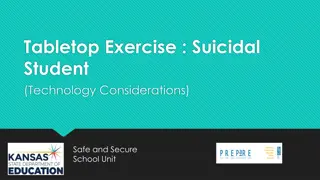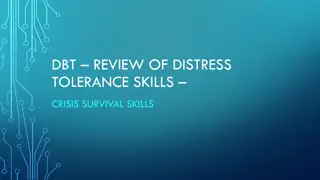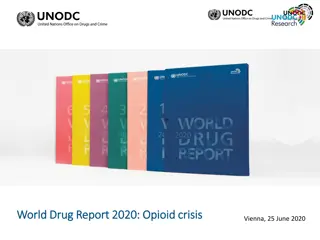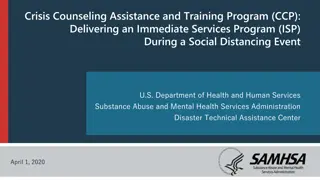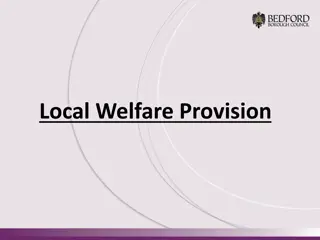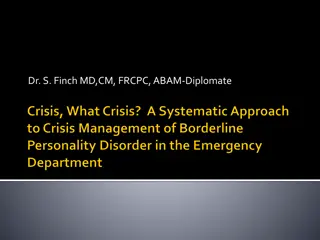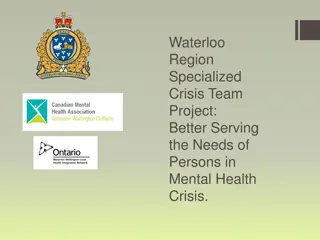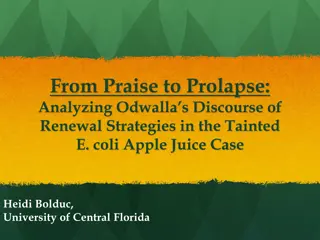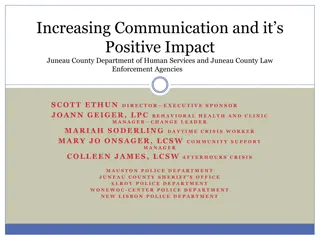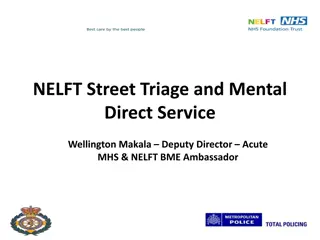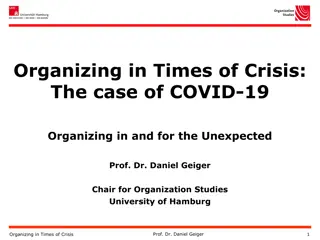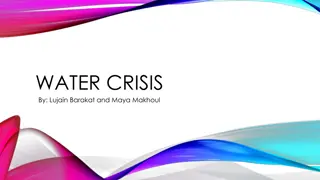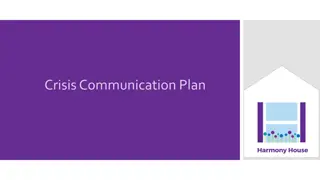Assessment Online in a Crisis
Fundamental values of academic integrity through honesty, trust, fairness, respect, responsibility, and courage. Understand why students cheat, the importance of community building, and ways to assess student integrity. Embrace the principles of honesty, trustworthiness, fairness, respectfulness, accountability, and bravery in academic settings."
Download Presentation

Please find below an Image/Link to download the presentation.
The content on the website is provided AS IS for your information and personal use only. It may not be sold, licensed, or shared on other websites without obtaining consent from the author.If you encounter any issues during the download, it is possible that the publisher has removed the file from their server.
You are allowed to download the files provided on this website for personal or commercial use, subject to the condition that they are used lawfully. All files are the property of their respective owners.
The content on the website is provided AS IS for your information and personal use only. It may not be sold, licensed, or shared on other websites without obtaining consent from the author.
E N D
Presentation Transcript
Assessment Online in a Crisis Dr Sharon Flynn, Project Manager 6 April 2020 #IUADigEd
Since 12 March Higher Education in Isolation vlog series (https://edtl.blog/higher- education-in-isolation-vlog-series/) Webinar on Teaching Online in a Crisis (23 March) 2ndEDTL newsletter (31 March) (https://edtl.blog/2020/03/30/march-2020-newsletter/) Getting Started with Online Learning for Students, available at https://www.allaboardhe.ie/Aspire/Learner/content/index.html#/ Technology Enhancing Assessment Exemplars https://docs.google.com/document/d/1- 53jSmf_uf46ojZKL4vJRuLtEHNZ9hdQs7lR_LH5ypM/edit
Academic Integrity in Online Assessment Recommendations available from https://www.iua.ie/wp- content/uploads/2020/04/Academic-Integrity-in-Online- Assessment_COVID19.pdf These recommendations are based on materials shared by Dr Tricia Bertram Gallant, Director, Academic Integrity Office, UC San Diego in a webinar recorded on 20 March 2020.
Are online students more likely to cheat? online students are no more likely to cheat on assessments than campus-based students the exception to this might be in exams, where students are used to being monitored under exam conditions students are more likely to cheat when they are under pressure, when they have opportunity and when it is less likely that there will be consequences, if caught
Why do students cheat? Lack of time Lack of energy High workload Lecturer won t notice Lecturer won t care Can t do the work Poor standard of written work Low priority I want to see if I can get away with it. I don t need to learn, I only need to pass. This doesn t matter. This has nothing to do with my future career. Everybody does it.
Create an environment conducive to integrity Make information about academic integrity easy to find in your online course. Include a prominent link from the VLE to university or local policies. Make sure that information is clear and useful. What does academic integrity mean for your course and assessment? If online assessment is to be open book , what does that mean? Explain what are legitimate sources for them to consult during assessment. Discuss academic integrity with the class. Encourage them to suggest what it means for your course, assessment, and their professional lives. If they are involved in the co- creation of an honour code, they are more likely to understand it and take it seriously. This helps to create a culture of academic integrity. Require your students to affirm academic integrity on each piece of assessment, linking to the honour code and acknowledging their sources (which may include people consulted or legitimate groupwork). Form a personal moral connection with your students, through sharing your own concerns and motivations. Students will not want to let you down by cheating, if they feel a personal connection with you. Model academic integrity in your own actions.
Consider module assessments in the context of academic integrity Reduce motivation to cheat by ensuring your assessment is meaningful and authentic, giving appropriate levels of choice (in topic or form of submission) and control. But don t overwhelm students who are already under stress with too much choice. Assume that your students will access information on the internet and talk to other students, family members etc. Clarify what you mean by open and who or what are legitimate sources. Redesign your assessment to assess how they can make use of those sources. Encourage students to acknowledge all their sources, not just books and journals, but also people they have consulted. Students are used to practicing (for example, consulting past papers). Give opportunities for them to practice any new formats.
Make use of online tools Consider simple proctoring using online collaboration tools with video, where you have small groups or teaching assistants to help. Use the testing and assessment features in your VLE, where appropriate, for timing, randomizing questions, similarity checking. Don t use question banks from textbooks, these can be easily googled. If using similarity checking tools, check all the papers submitted, not just a sample. If possible, use online tools to conduct short follow up oral sessions with students, to check understanding and authorship.
Dont give the impression that academic integrity is not important because of the unusual situation You are the person who has to support and model academic integrity for your students. Continue to monitor for plagiarism and contract cheating. It is your professional and ethical obligation to follow the usual institutional procedures for reporting issues that arise.
CALPD CALPD - - Collaborate Ultra for Live Exam Invigilation Collaborate Ultra for Live Exam Invigilation Started first pilots in December 2016, in use in CALPD since April 2017 Developed protocols based on US online exam procedures from Proctor U Used with small number of international students each year Send instructions to students several weeks before exam Hardware tests with students before deferral date to ensure their Broadband can handle the video feed Exam Before Exam: Students log in half hour before exam to check exam space, email photos to invigilator, download exam paper from Bb 5 minutes prior to start time During exam: phones on flight mode in view of invigilator, students can t leave the room After Exam: take photos of all exam pages, email to invigilator, post exam pages to CALPD Downside to using CU Can only view 4 video feeds in one session Using Zoom this year Can view several students on screen at once, limiting to 12 due to prep time Any questions? Contact bonnie.long@nuigalway.ie
